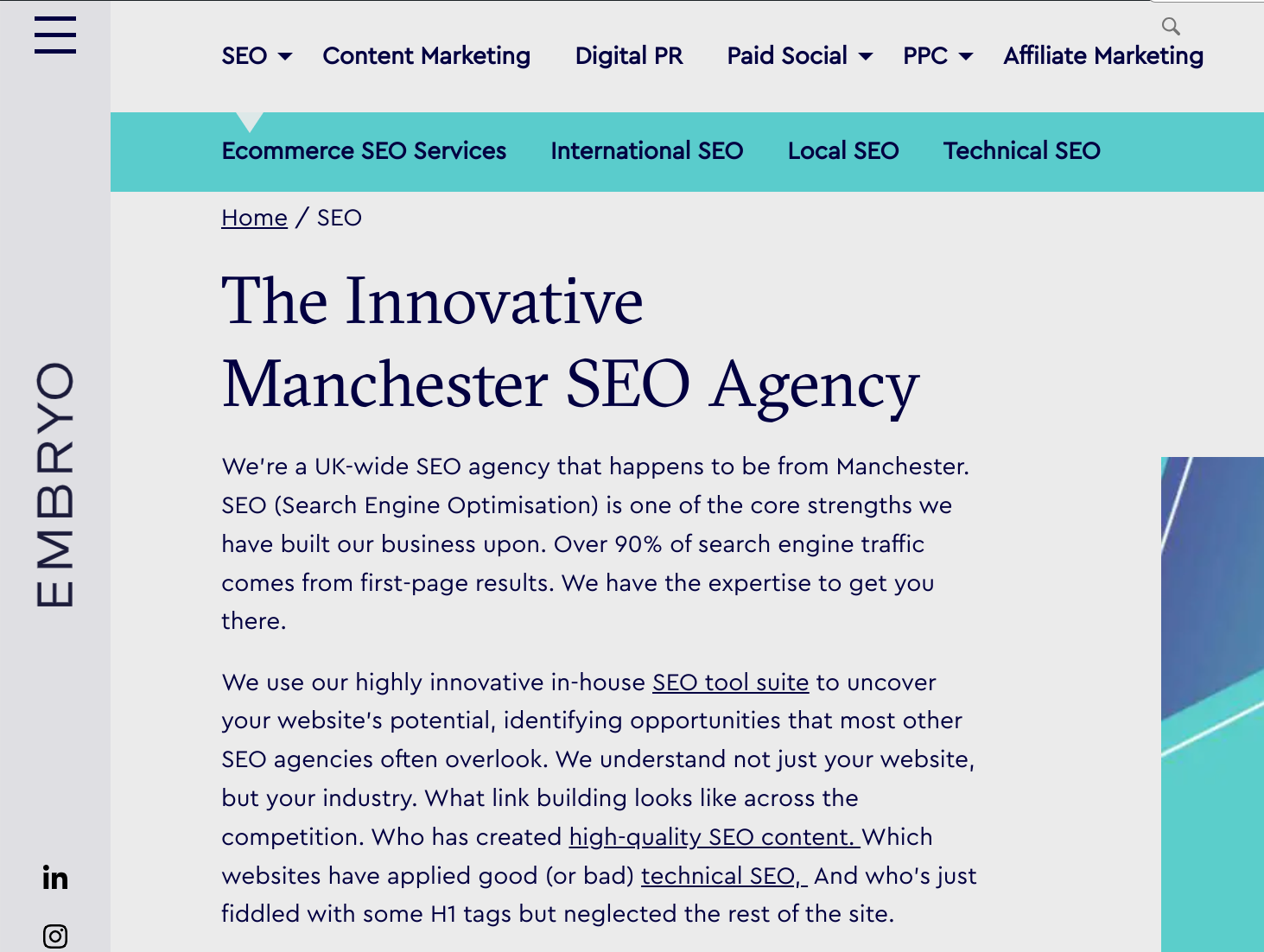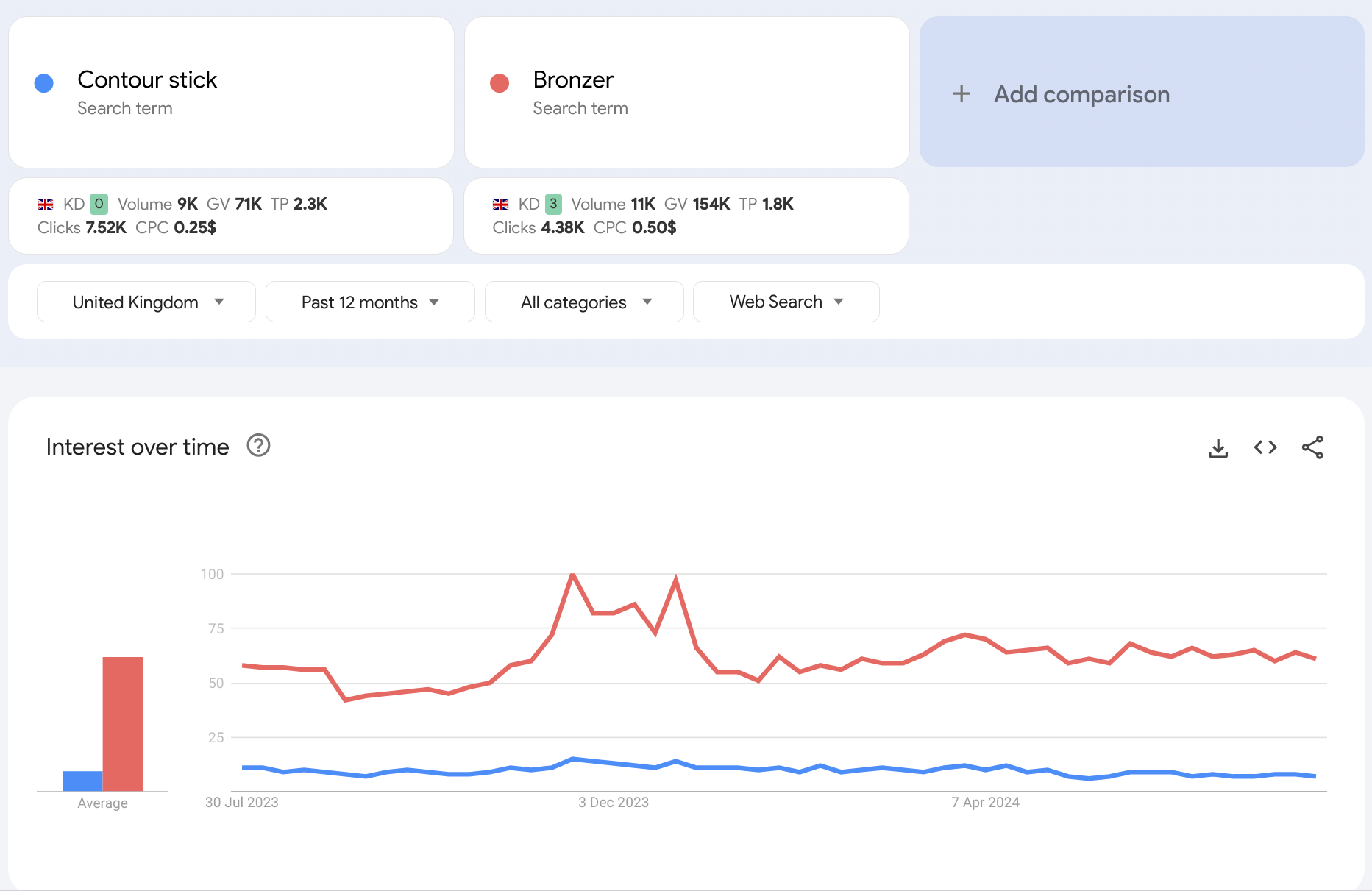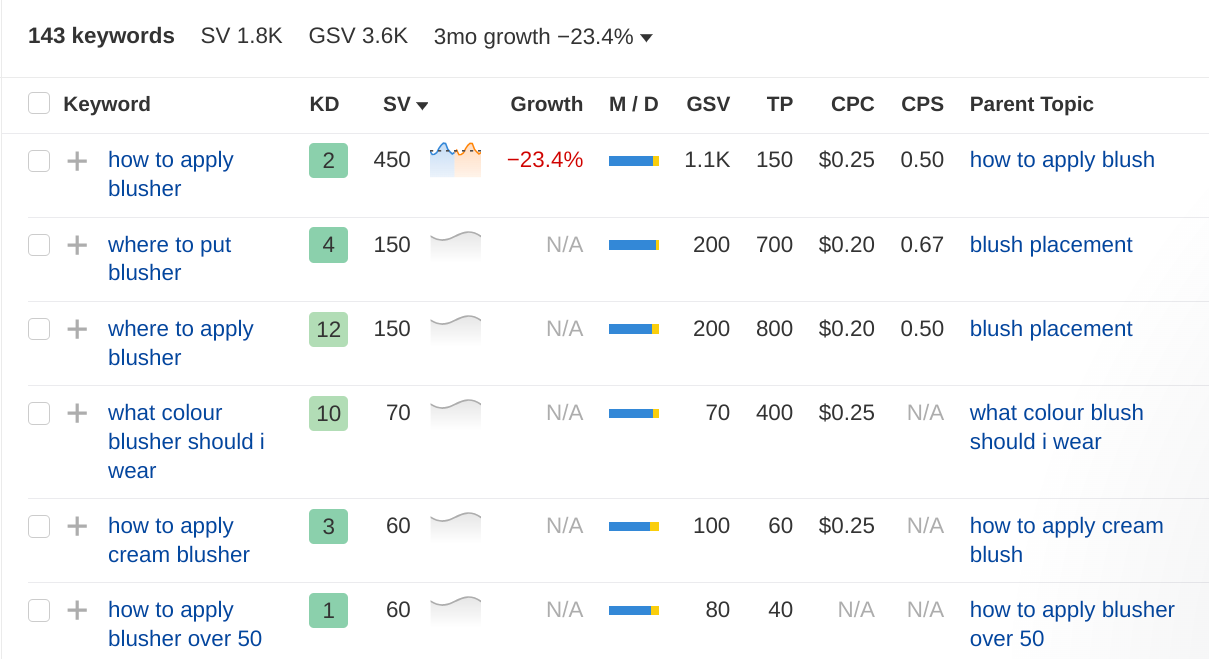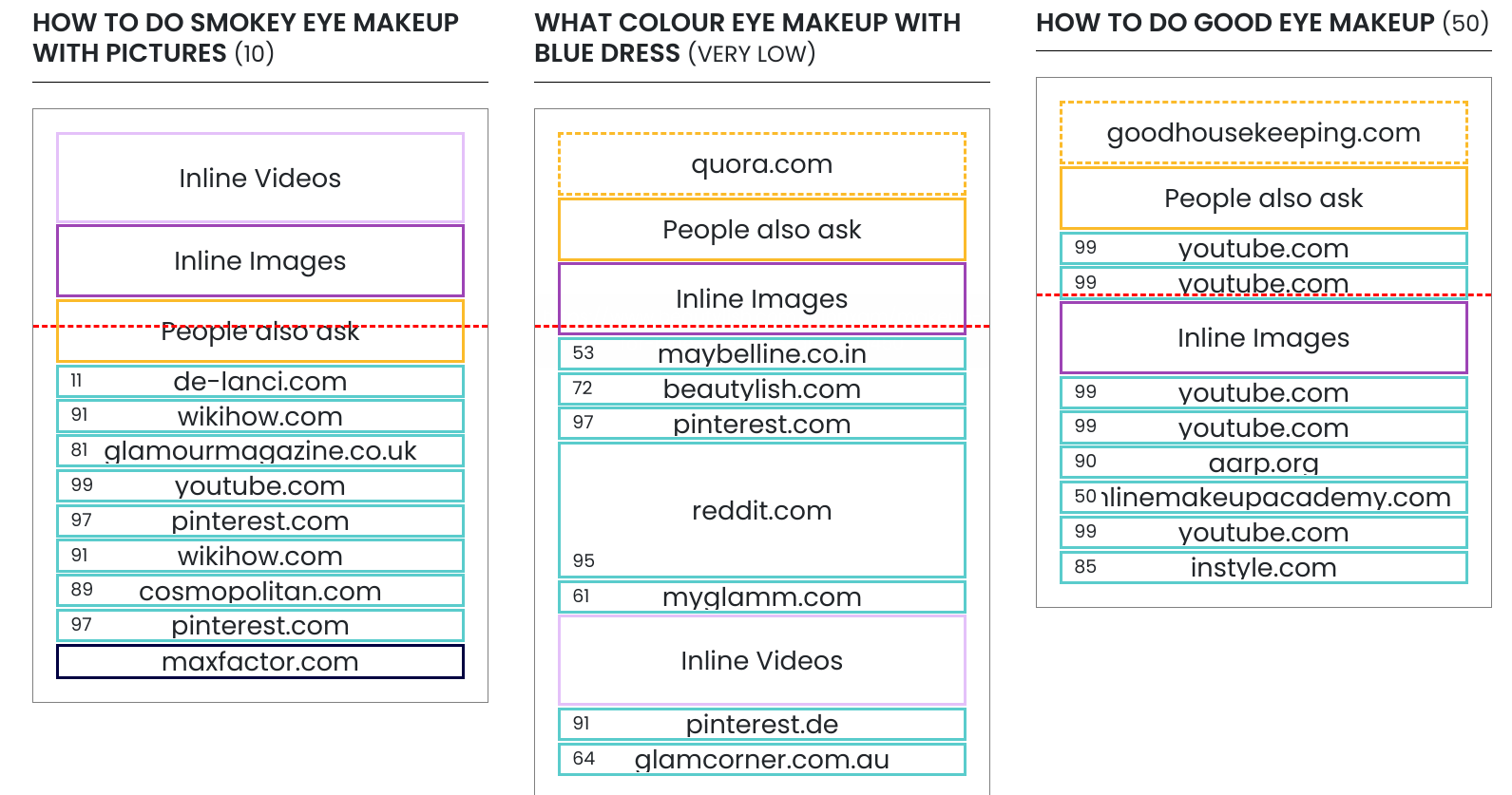
The importance of keyword research

Keyword research is one of the most important things to think about when you’re conducting successful SEO for websites. Keywords, also known as search terms, can be a single word or a phrase, depending on the search volume from users.
For us SEOs, it helps identify which terms we should be targeting to get sites more traffic organically. However, multiple benefits to keyword research make this activity useful for any SEO or website owner.
We’re here to show you why.
Why is Keyword Research Important?
Keyword research is important for many reasons, some even beyond SEO. It’s not an easy or fast task to complete, so what important reasons make doing keyword research worth it? We’re here to convince you.
Site structure and pages
It’s likely you’re here because you have a website that needs a visibility boost and want to optimise your website to rank on search engines. Carrying out keyword research is central to the entire website creation and optimisation process. It allows you to align your website pages with commonly used search terms. This means doing a deep dive into your industry to work out how people talk about the products or services you provide.
You’ll find answers to the following questions once you’ve identified keywords in your niche:
- How many searches per month that service/product gets
- What variations, abbreviations and slang people use to search for the same thing
- How competitive the term is and how easy it could be to rank for specific keywords
Using our own site as an example, keyword research allows us to define our service pages using relevant terms that are target audience actively uses. By finding out what our target audience searches for, we can target those search terms with specific commercial pages and subpages.

Content creation and relevancy
Once you’ve created and optimised your website structure, you can utilise keyword research to craft further SEO-optimised content. Ranking on Google doesn’t happen overnight. You can’t set a website live and expect position 1 for every search term. It takes an ongoing, people-first content strategy based on relevant keywords to enhance organic growth, visibility and traffic.
There are over 99,000 search queries entered into Google a day. Many of these come from people asking questions as they explore options. They jump between websites for reliable advice, comparisons, reviews, blogs, and product listings – all types of diverse content. This is what we know in the marketing world as the ‘messy middle‘. Keyword research is important because it helps you identify what your target audiences’ typical journey looks like from research to enquiry or purchase.
Let your keyword research help you tap into that journey, answering questions with trusted answers and useful guides. If you start using keyword research and other SEO best practices to craft content in this way, you’ll start capturing quality leads and traffic.
Search intent
Search intent refers to the type and purpose of a user’s query and the results they expect to see Google display. Google’s Search Quality Evaluator Guidelines include a comprehensive section on search intent and how they interpret keywords and the user’s goals when they’re searching. Whether commercial (looking to explore different products) or information (seeking advice or information), Google aims to rank the most appropriate page that satisfies that goal (the search intent).
Therefore, if you want to rank highly for a range of search terms, thorough keyword research is important in understanding search intent.
In the snapshot below, taken from our proprietary software, you’ll see a condensed view of the current results pages for a selection of keywords related to the beauty industry. A beauty retailer looking to improve their online presence and dominate rankings would use keyword research to capture traffic from curious searchers.
If Google deems that the search intent is informational, blog pages from industry-leading websites or chat forums will likely be displayed. As we can see below, many of the beauty-related questions rely on video tutorials, opinion-based forums and imagery.

- Intermingle, Embryo’s Internal SEO Tool
Market Research and Seasonal Demand
Keyword research is also important (yet often overlooked) when it comes to stock management and deciding what new products or services to introduce. Let’s continue with the beauty example and assume that sales and development teams are working on new product launches. Keyword research tools paired with Google Trends can be a highly effective way of uncovering national demand based on how regularly people search for specific items or trends.
Below, we’ve entered two similar types of beauty products to compare keyword volume and interest over the past year. If we were to take learnings from this, it’d be safe to assume from keyword data that bronzer is slightly more popular than a contour stick.
This method can be used for absolutely any industry. Don’t feel like keyword research solely belongs to SEO activity. Let it inform your entire marketing and business development strategy!

The Meaning Of Keyword Research
Keyword research means examining which keywords will help target audiences find your site. We want to find, and make the most out of, certain terms that are relevant and help sites rank.
As SEOs, the algorithms we use to help our sites rank change all the time, but there are some basic principles that we use to get started with every company we work with:
- Research keywords with realistic search volumes for the business size.
- Create content, page titles and links that all relate to and contain the keywords you want to rank for.
- Over time, continue to optimise your content and link build to relevant sites for your keywords.
- You’ll see your rankings increase as Google crawls your site and sees all these links and keywords in your content.
Consider you have a client that offers recruitment for universities in Manchester. The aim is to find keywords that the people you want to target in Manchester will search for, such as ‘University recruitment Manchester’. You want users to find your client’s site in the Google search results page, but sadly, the site doesn’t rank for that key phrase yet.
The aim is to find some details about the keyword, such as the search volume (how many people actually search for that term), where competitors rank, and how difficult it would be for your client to rank for it.
Following our basic algorithm will help rank for the keyword with ease, if the keyword has a low search volume, as there isn’t as much competition. But for keywords with higher search volumes (around 10,000 searches or more a month), this will be more difficult.
Different types of keywords (and how to choose them)
Now we’ve covered search intent and the value of keywords, you’re probably wondering how to bucket keyword types and what to do with them. It can be easy to assume that the keywords with the highest search volume are the best to target. However, this is a common misconception and focusing solely on keywords like this at the start of any new SEO campaign is likely to have an adverse effect.
Usually, higher search volumes and shorter keywords are harder to rank for due to factors like the authority of the competing websites. Let’s dig deeper into this below:
| LONG-TAIL KEYWORDS | MEDIUM-TAIL KEYWORDS | SHORT-TAIL KEYWORDS | LOCAL KEYWORDS |
| 4 or more words | 2-3 words | 1-2 words | Include geographic modifiers |
| Often specific questions | High purchase intent | Initial research queries with lower purchase intent | High relevance for brick-and-mortar businesses |
| Lower search volume | 1 page can rank for numerous medium-tail words | Usually broad product names or brands | Often used by users with strong purchase intent |
| Usually part of a user’s research stage | Users may be searching for specific types of products | Highly competitive and high search volume | Can drive foot traffic and phone inquiries for local businesses |
| Can be leveraged for FAQs and customer support sections of a website | Can capture a broader audience compared to long-tail keywords | Potential for high traffic but lower conversion rates | Often targeted with location landing pages |
| Often low difficult keywords and easier to rank | Often medium-difficulty keywords | Very competitive keywords | Low competition and lower search volume |
Short Tail Keywords
Short-tail keywords tend to be general and very broad. They usually might not have specific queries and may not yet know exactly what they’re looking for. Someone searching for the term ‘makeup,’ for example, is likely to have a vague idea of what they’re really looking for, as the keyword itself is super broad. This lack of specificity means the search intent behind this query is too general to target precise products in such a highly saturated market, So, search results for short-tail keywords like this include a wide range of content and products, making it highly competitive to rank well for this keyword.
When it comes to utilising short-tail keywords, we suggest targeting them with your main category pages and landing pages. These help to inform users and search engines of your offerings whilst capturing traffic from broad searches, guiding them to the specific subpages on your website.
Long Tail Keywords
Long tail keywords contain more than 3 words in the phrase. They usually have lower search volumes, and long-tail keywords/phrases tend to have lower search volumes, but they are still very beneficial for your site as long-tail keywords will still have search volumes in double figures at least.
Make sure you take in all the factors above before deciding on the keywords you want to rank for, and finding out later you’re trying to rank for keywords you know you can’t. You’ll waste your time trying to rank for a keyword with 500,000 searches a month if you are a small business with low traffic, while the time you might have put into ranking for that highly competitive keyword could have improved the rankings for 10 keywords with lower search volume, which can still gain you significant traffic.
Find long-tail keywords using tools like AHRefs:

If you need help finding which keywords you need to rank for to improve your SEO, then contact us now.





